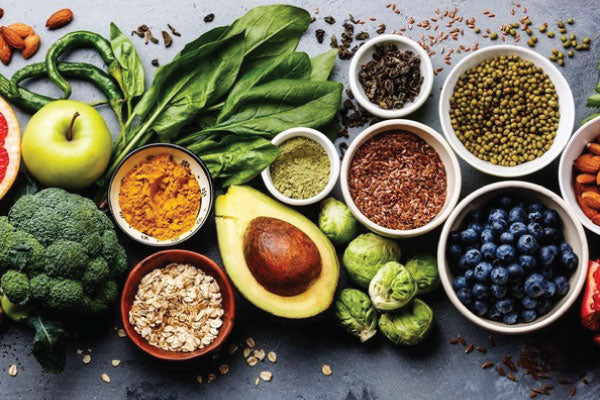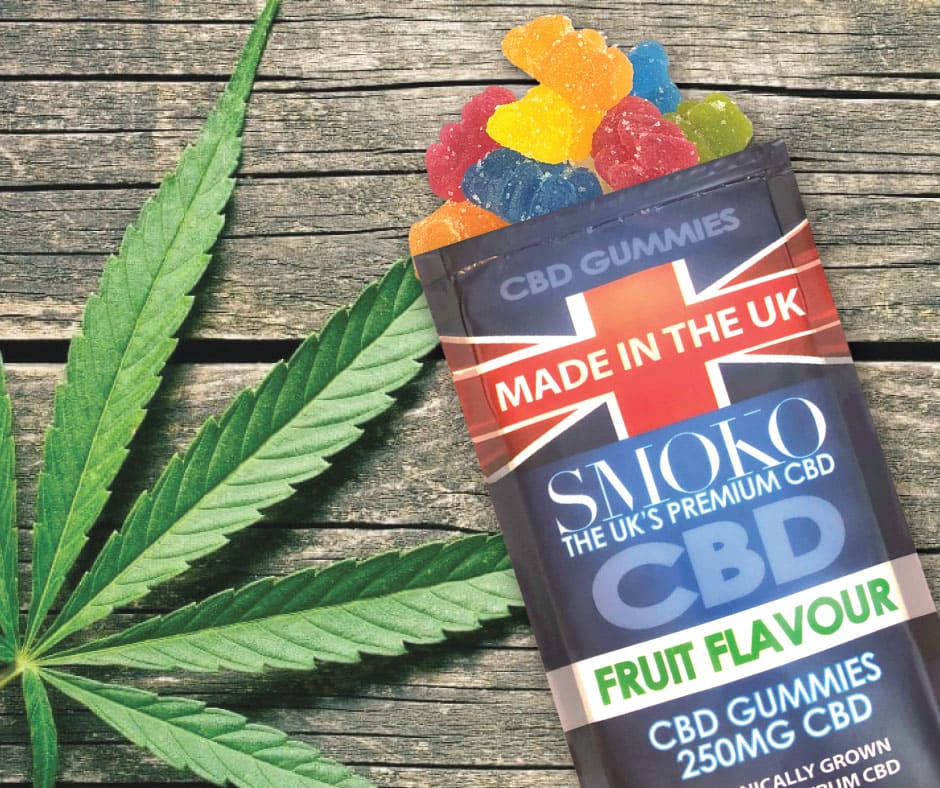Over recent years, cannabis for medical use has become commonplace in many states in the US. The value of the chemicals found in the cannabis plant are being explored - as there are a lot of different compounds found in the cannabis plant, it has taken some time for scientists to isolate the behaviour of many of the individual compounds.
The main components of the cannabis plant are cannabidiol CBD and tetrahydrocannabinol THC. Both of these have medicinal value, but among many differences between these two chemicals, there is one big one - THC gives a ‘high’ when ingested by humans, while CBD doesn’t.
Given that high level athletes are subject to drug testing, it is significant that the World Anti-Doping Agency removed CBD from the Prohibited List in 2018. While the intoxicating THC is still prohibited, the safety of CBD, and its potential therapeutic value, indicate that CBD could be of utility for professional athletes.
WHAT IS CBD OIL?
CBD Oil is cannabidiol, extracted from hemp plants (cannabis plants with less than 0.3% THC) dissolved into a carrier oil - this is often made from coconut or palm oil, containing medium chain triglycerides (fats).
There are a few different types of CBD that are added to the carrier oil - from CBD isolate, which is just cannabidiol, to full spectrum CBD, which contains all of the cannabinoids, terpenes and flavonoids found in the hemp plant (including THC).
The third form available is broad spectrum CBD - this contains all of the cannabinoids, terpenes and flavonoids from the hemp plant, just like full spectrum CBD, with the exception of the psychoactive THC.
HOW DOES CBD OIL AFFECT THE BODY?
The reason chemicals found in cannabis have medicinal value to us is down to the system that is inside humans called the endocannabinoid system. Discovered in 1992, a chemical called ‘arachidonoyl ethanolamide’ indicated the existence of cannabinoid-like compounds within the human body.
This chemical, given another name ‘anandamide’ - from the Sanskrit word ‘ananda’ which means ‘bliss’ - has another nickname: the bliss chemical. It binds to the cannabinoid receptors (‘CB1’ or ‘cannabinoid-1’) in the brain, much like THC does, helping to regulate eating behaviour, and playing a role in generating pleasure and motivation. This could be one reason that CBD can help treat anxiety and depression!
CBD helps to reduce the breakdown of anandamide, while also acting on CB2 receptors that are more commonly associated with the immune system. As athletes are individuals who push their body to - and sometimes over - the limit, a well-functioning immune system is essential for the recovery from intense exercise.

HOW DOES CBD OIL HELP PROFESSIONAL ATHLETES?
Relieve pain
We’ve already mentioned anandamide, the bliss chemical, and how this is associated with feelings of motivation and happiness - it also helps to reduce the perception of pain through this interaction with the CB1 receptors. Having CBD present in the brain will extend the lifetime of anandamide, helping to reduce pain for longer.
Alternative to pain management medication
The potential for CBD as a tool for pain management has been explored since the early 2000’s, with positive results seen in people with a number of medical conditions including multiple sclerosis, spinal cord injury, peripheral neuropathy, fibromyalgia, and limb amputation. There have been less positive results in cases of Crohn’s disease, suggesting that CBD may not be able to help manage all forms of pain.
An online survey conducted in The Journal of Pain by the U.S Association for the Study of Pain found of the 878 people with fibromyalgia surveyed, 632 reported using CBD products as a substitute for their prescription medications for pain.
The drugs CBD was substituted for included non-steroidal antiinflammatory drugs (NSAIDs), opioids, and benzodiazepines. The two biggest reasons for switching medications for CBD were that fewer side effects were experienced, and CBD managed their symptoms better.
The instances of substituting CBD for opioids is very significant. As opioids are the strongest form of painkiller we have, people choosing CBD to manage their pain over an opioid medication indicates the potential value of using CBD for pain relief.
One study that considered the mechanisms by which CBD could help with chronic pain, and indicated that CBD helps to regulate an enzyme known as ‘cytochrome P450’ which is involved in breaking down compounds, like medications, in the body. This ‘conservation of function’ results in higher bioavailability (uptake) of the body’s internal pain relievers.
Improve focus
Professional athletes need to keep their minds sharp - whether it’s a team game or a contest of individuals, maintaining focus will help with athletic performance.
The use of CBD to promote ‘wakefulness’ has been investigated, with a mixture of results. Low doses of CBD have indicated improved wakefulness in one study, another study had markedly higher doses, and the medium dose applied in this second study also saw improved wakefulness.
One study did put forward a mechanism for CBD’s role in wakefulness, citing that administering CBD to the hypothalamus increases the presence of a protein known as ‘c-Fos’ - a protein that is used as a marker of activity in brain cells - suggesting that the presence of CBD can increase neuronal activity in the hypothalamus. As it has been suggested the hypothalamus plays an important role in alertness, this is significant.
The study also cited that injecting CBD to the Dorsal Raphe Nuclei (DRN) increases the presence of c-Fos there, too. The DRN is responsible for most of the serotonin released in the brain, and activity in the DRN is higher when awake, and decreases during sleep. The effect of CBD in the brain appears to be increased activity, which may explain how it helps improve wakefulness in some cases.
Promote better sleep
As previously mentioned, there is some evidence for CBD promoting wakefulness, but there is also evidence that CBD could help improve sleep. Where lower doses of CBD do, in some cases, improve wakefulness, larger doses appear to improve, or induce, sleep.
One of the ways that CBD may help with sleep could be down to the other effects of CBD. The ability to help with pain, anxiety and inflammation may be the reason why many report an improved ability to fall asleep, and getting better sleep in general.
Reduce anxiety
The majority of serotonin release into the brain is controlled by the DRN - as mentioned, CBD appears to increase activity in this area of the brain. The receptors responsible for serotonin release are known as ‘5-HT1A’ receptors, and studies have seen CBD act directly on these receptors in culture.
Typically, molecules that act on 5-HT1A receptors have anti-anxiety properties, and while CBD appears to work on these receptors in culture, studies in living subjects suggest the action of CBD is more to change the receptor’s response when it is activated, rather than acting on the receptor to specifically release serotonin.
Effective treatment for sports recovery
Sporting injuries can lead to chronic pain, and therefore inflammation. An injury for a professional athlete is likely to lead to anxiety, and possibly troubled sleep - it is their profession, after all! Speeding up recovery is essential, and preventing injury even more so.
Research suggests the properties of CBD can help do both:
- The analgesic (pain killing) effect of CBD will help reduce the perception of muscle soreness.
- The action of CBD on the endocannabinoid system reduces the number of pro-inflammatory cytokines (immune cells) sent to site, leading to reduced inflammation.
- The anxiolytic (anxiety killing) effect of CBD can help to maintain your mental wellbeing, helping you function normally during a recovery period, and achieve good sleep.
- The potential for CBD to aid in sleep could aid recovery as sleep is when the body is repairing itself.

Relaxes muscles
One of the functions of the endocannabinoid system is to influence communication between nerve cells, and this includes the signals we send to our muscles to contract.
Fast twitch muscle fibres have a higher potential for stiffness than slow twitch muscle fibres, and CBD can reduce the amount of chemical messengers sent to contract the muscle, which results in less muscle spasm, and should ultimately help the muscle to relax.
RESEARCH DONE ON CBD OIL AND ATHLETIC PERFORMANCE
Where better to look for evidence that CBD can help athletes than the athletes themselves? The only problem here is the rules of the sport that they participate in. The NFL in the US still won’t freely allow CBD use, except under agreement from the NFL Players Association.
UFC Contender Nate Diaz created a bit of a stir when he vaped CBD after his defeat at UFC 202 in 2016. Being an MMA fighter means concussion, muscle soreness and inflammation are part of the job description, and Nate is showing his faith in CBD: he has teamed up with his brother, Nick, to sell CBD products.
The United States isn’t the only place professionals are using CBD - rugby players Dominic Day and George Kruis are no strangers to contact sports, and after using CBD, they decided to create their own CBD products!
BEST CBD PRODUCTS FOR ATHLETES
The best CBD product for any given athlete is likely to depend on the sport they play.
Runners are going to deal with stiff and sore muscles, so a topical CBD cream may be the most appropriate product to tackle those problems. Topical CBD doesn’t make its way into the bloodstream, so does not provide all the potential benefits of CBD.
Contact sport players could use the neuroprotective action and neurogenesis CBD oil can provide, as well as applying topical CBD to sore and stiff muscles, for a well rounded approach to their recovery. There is evidence that the neuroprotective effect of CBD could aid in a number of neurological conditions, too!
Most professional athletes will need to avoid THC, and so are limited to CBD isolate or broad-spectrum CBD products. Just be sure to check as much detail on broad spectrum CBD products before you buy to make sure they contain no THC - one investigation into online bought CBD products found that 18 of the products had higher levels of THC than stated on the label - this could result in a positive drug test, so ask for the manufacturer’s certificate of analysis for the product to ensure you don’t shoot yourself in the foot!
WHY DO PROFESSIONAL ATHLETES TAKE CBD? CONCLUSION
The answer to why professional athletes take CBD comes down to the role of the endocannabinoid system in regulating our eating, sleeping, relaxing and protecting. All of those functions are of paramount importance to an athlete.
CBD acts on the endocannabinoid system, encouraging it to normalise levels of chemical messengers and inflammatory cells, and encouraging the activation and release of other chemicals that help to mitigate pain, and protect our nerve cells.
If you consider yourself something of an athlete, or are just doing what you can to stay fit and healthy, then consider using SMOKO CBD Oil oral drops or edible gummies for your athletic needs!
*2024 Update - Don't miss out on our limited-time offer of a FREE* pack of CBD Gummy Bears when you buy any of our amazing CBD products!









